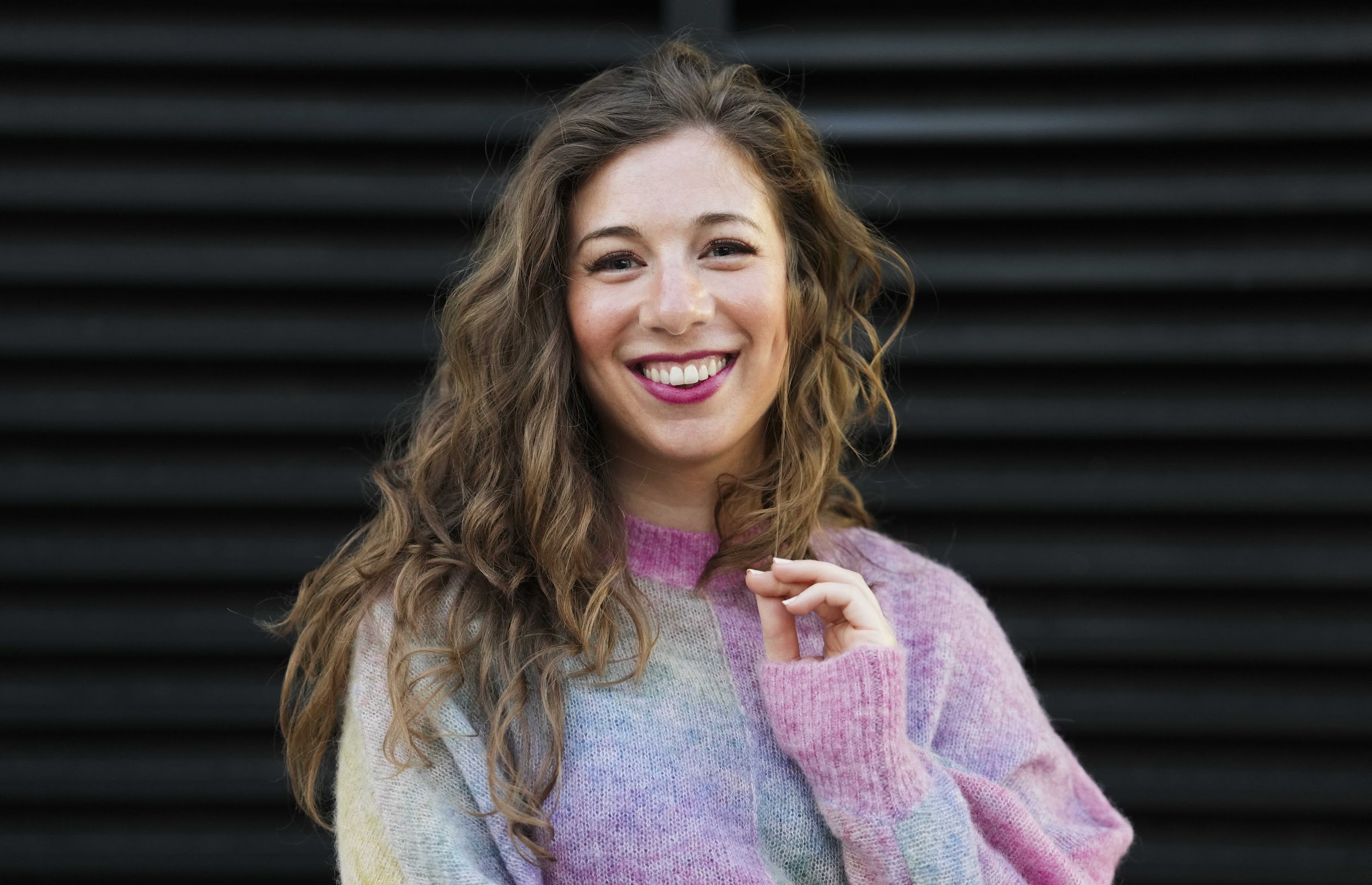The Art of Being Natasha Lyonne
In an industry that feels like it's ruled by the algorithm, the actress skips people-pleasing to follow her gut instinct.

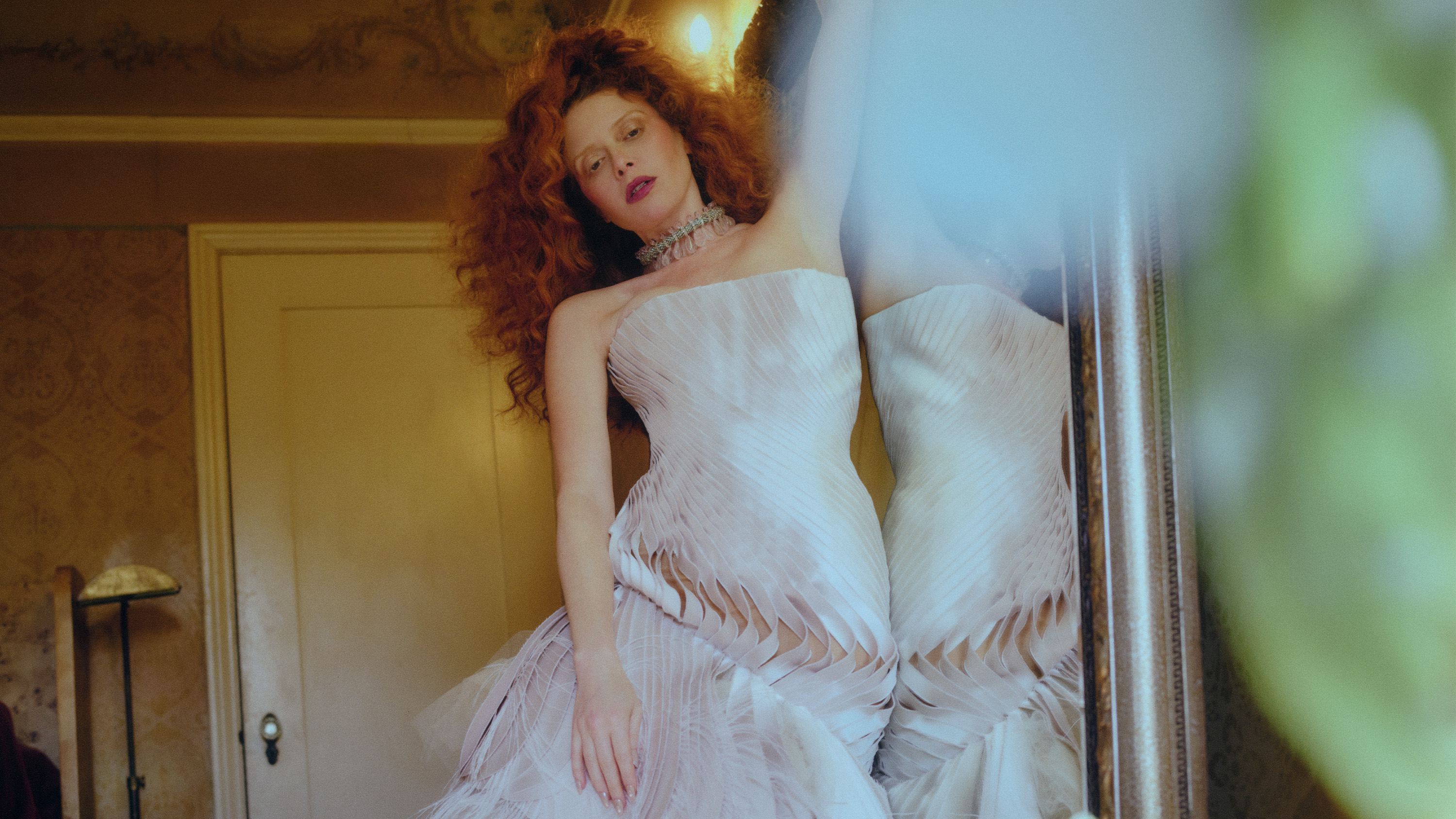
Select the newsletters you’d like to receive. Then, add your email to sign up.
You are now subscribed
Your newsletter sign-up was successful
Want to add more newsletters?
Natasha Lyonne is slouching on a low-slung office couch, talking about how we’re all going to die.
From the street, the building we’re in looks like a triangular blue-gray hunk of nothing special. But inside, the historic Mack Sennett Studios in L.A.’s Silver Lake neighborhood—which was built in 1916 for the pre-talkie era—has a glamorous, eclectic feel, full of creatives-at-work paraphernalia and black-and-white photographs of silent film stars. This is the home of Animal Pictures, Lyonne’s production company.
It’s late on a Friday afternoon in April, and the second season of Poker Face will premiere in just a few weeks. Lyonne executive produces, occasionally directs, and stars in the Rian Johnson-created series as Charlie Cale, a vagabond with the uncanny ability to tell if someone is lying, a talent she uses to solve the murders she stumbles into on her travels.
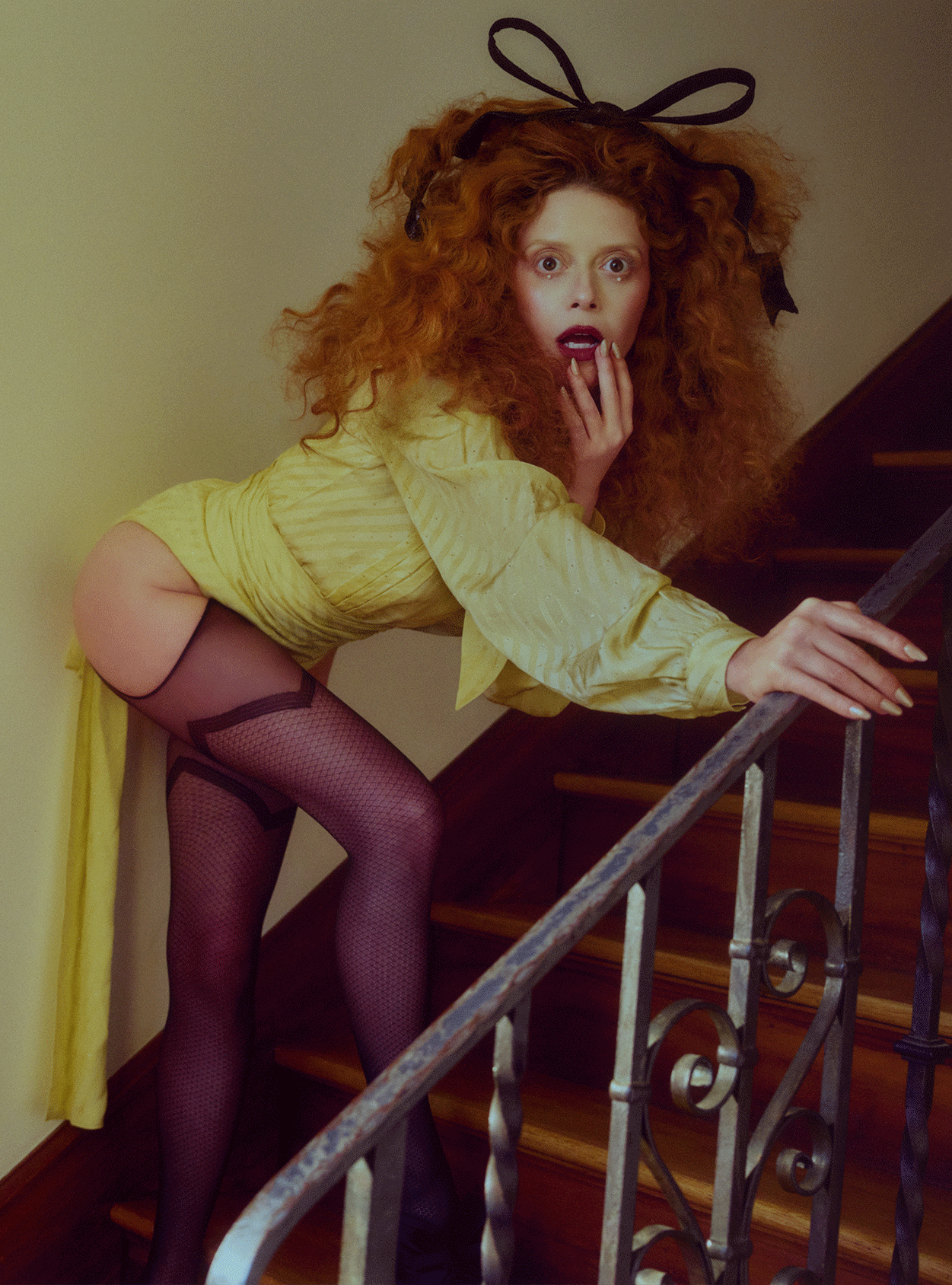
Acne Studios jacket, bodysuit; Connor O’Grady headpiece
A seasoned pro who has been in show business since she was in elementary school, Lyonne, 46, is surely aware of the unofficial guidelines for our encounter—namely, that she is here to promote a project and is supposed to stay on-message, dutifully performing the role of Shiny Television Star. But Lyonne has always had her own way of doing things, and she does not let these obligations dictate the arc of our discussion, which is really less of an arc and more of a wild zigzag.
When I first arrive at the studio, Lyonne offers to show me around the building. Then she swiftly cajoles Bryn Mooser—with whom Lyonne founded Asteria Film Co., an AI film and animation studio—into giving the tour instead. Beaming at Mooser with a very Charlie-Cale-getting-away-with-it gleam in her eye, she insists: “I like the way you tell it.” While Lyonne alternates between cracking jokes and checking her texts, we stroll across a large soundstage, past a high-ceilinged woodshop, and down to a 1920s-style speakeasy in the basement, where Lyonne passes on all the bar offerings—“I haven’t had a drink in 20 years.”—except for a lime Spindrift, which she abandons unopened. Then we loop back to an office on the main level, where Lyonne plops down on the couch.
Before bringing the conversation around to our inevitable mortality, Lyonne gets a text inviting her to Search Party star Alia Shawkat’s birthday party that evening, the plans for which intermittently pull her out of the conversation and into her phone. When Lyonne does pipe in, it’s to offer her meandering thoughts on everything from learning the definitions of “tradwifes” and “yachties” (“girls who hang out on yachts”) from a certain, wise woman of the world—Taylor Swift (“I hate to drop a name, but…”) to AI, which Lyonne says she wants to use "ethically" in filmmaking, to "put the artist first." She’s got a feature in the works with Brit Marling set in the world of an immersive video game, the announcement of which set off a wave of criticism from those who find Lyonne's argument—that there even is such a thing as "ethical AI" when the function of that AI is to replace the job of a person—unconvincing. (She later told Variety she blamed the backlash on "our bizarro culture of not having reading comprehension.")
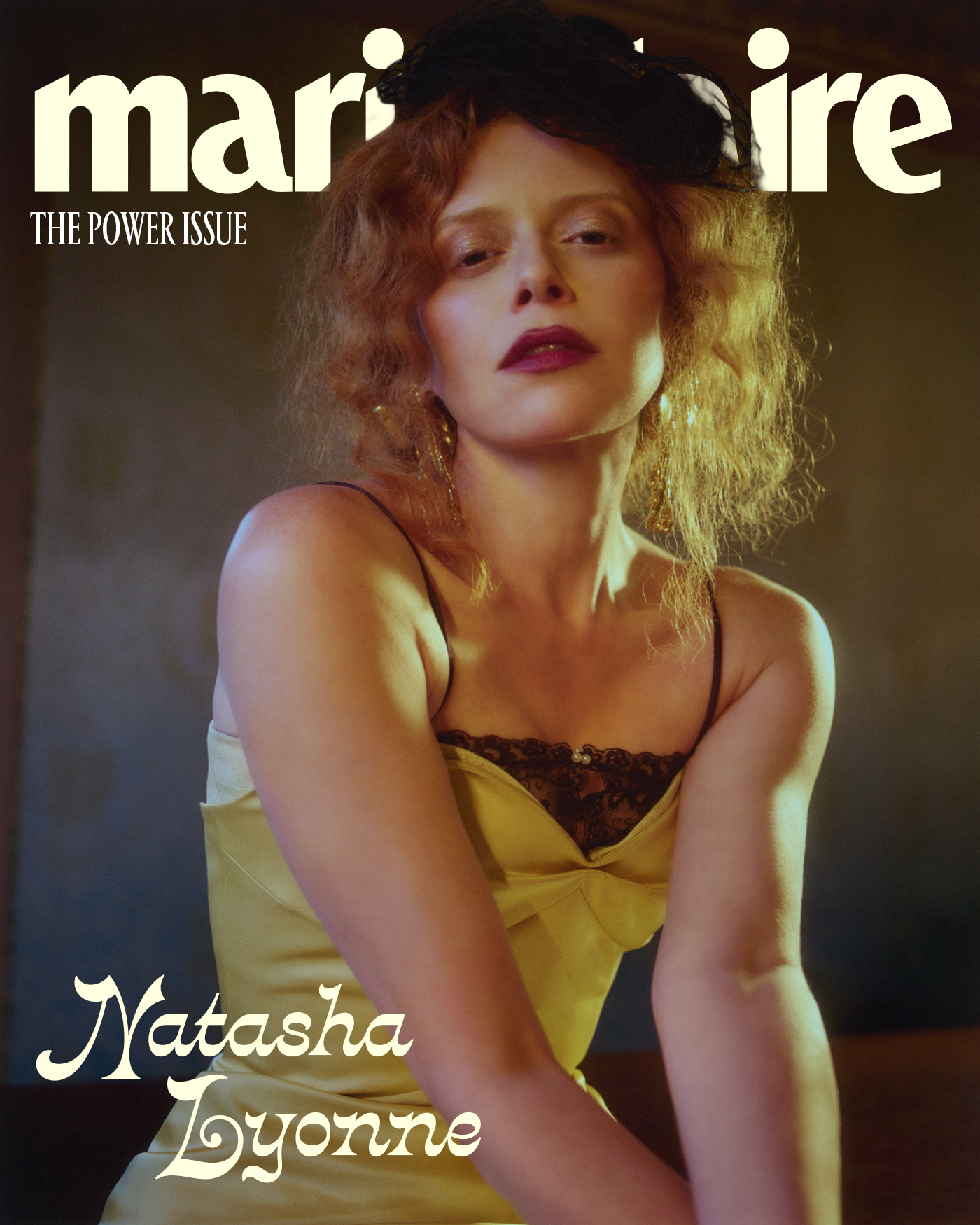
McQueen dress, Vintage top, hat
Lyonne also goes on a surprisingly intense tangent on the all-female Blue Origin flight, which took place four days prior. The voyage had been mocked and memed relentlessly, derided by most as a faux-feminist self-serving stunt. But Lyonne, whose demeanor all afternoon is mostly relaxed, if distracted, grows noticeably prickly as we discuss Katy Perry’s brief jaunt to the Kármán line. “I’m not into…trending takedowns of other women,” she says, calling the backlash “bloodsport.” “I don’t find it charming…I think all the women on that rocket were plenty accomplished, frankly. And I do think that if it had been a bunch of men, nobody would’ve said jack shit.”
Get exclusive access to fashion and beauty trends, hot-off-the-press celebrity news, and more.
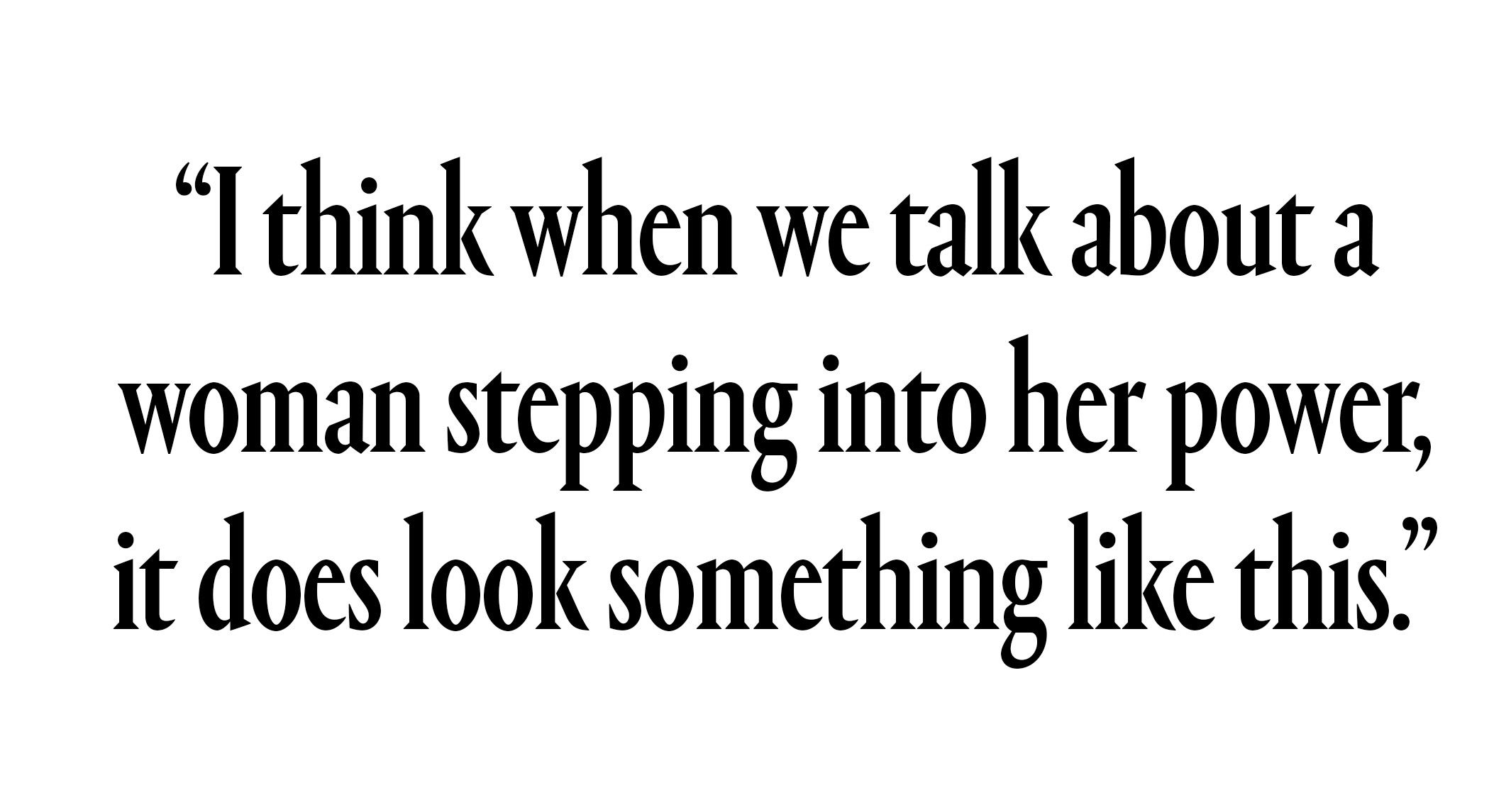
Somehow—through dream logic, or maybe just vibes—Lyonne connects all of this to Hollywood’s obsessive reliance on intellectual property and, relatedly, how death comes for us all. She laments how many movies now are based on underwhelming scraps of IP—board games, toys. Is this what cinema has become? Is this all there is? The thought makes Lyonne momentarily melancholy: “We lost an art form somewhere in that. We lost the point somewhere in there, which is, spoiler alert—we die at the end.” This last bit she says with a jolt of delight, as if reuniting with a dear friend. Hello, death!
“So it becomes a question mark for me, at this age or stage: Who is it for? Whose public approval, exactly?” she questions. “Is that genuinely a win, if you’re able to hit a zeitgeist of status quo correctly? Or is, actually, the name of the game to push that forward, even if that risks being misunderstood temporarily?”
As someone whose best-loved projects could all be filed under “offbeat,” Lyonne seems to have made her choice, and it’s the weirder, wilder path. In an industry of people pleasers, Lyonne’s priority appears to be pleasing herself—making what excites her, whether or not it aligns with what is expected, conventional, or popular; trusting that her instincts should rule the day and that everybody else can understand it or not. “You do develop a bit of a thick skin around myopic, short-term hot takes that don’t really encapsulate the breadth of vision being presented,” she says. “It’s a gift of getting older: You discover just how ill-informed many people are.”
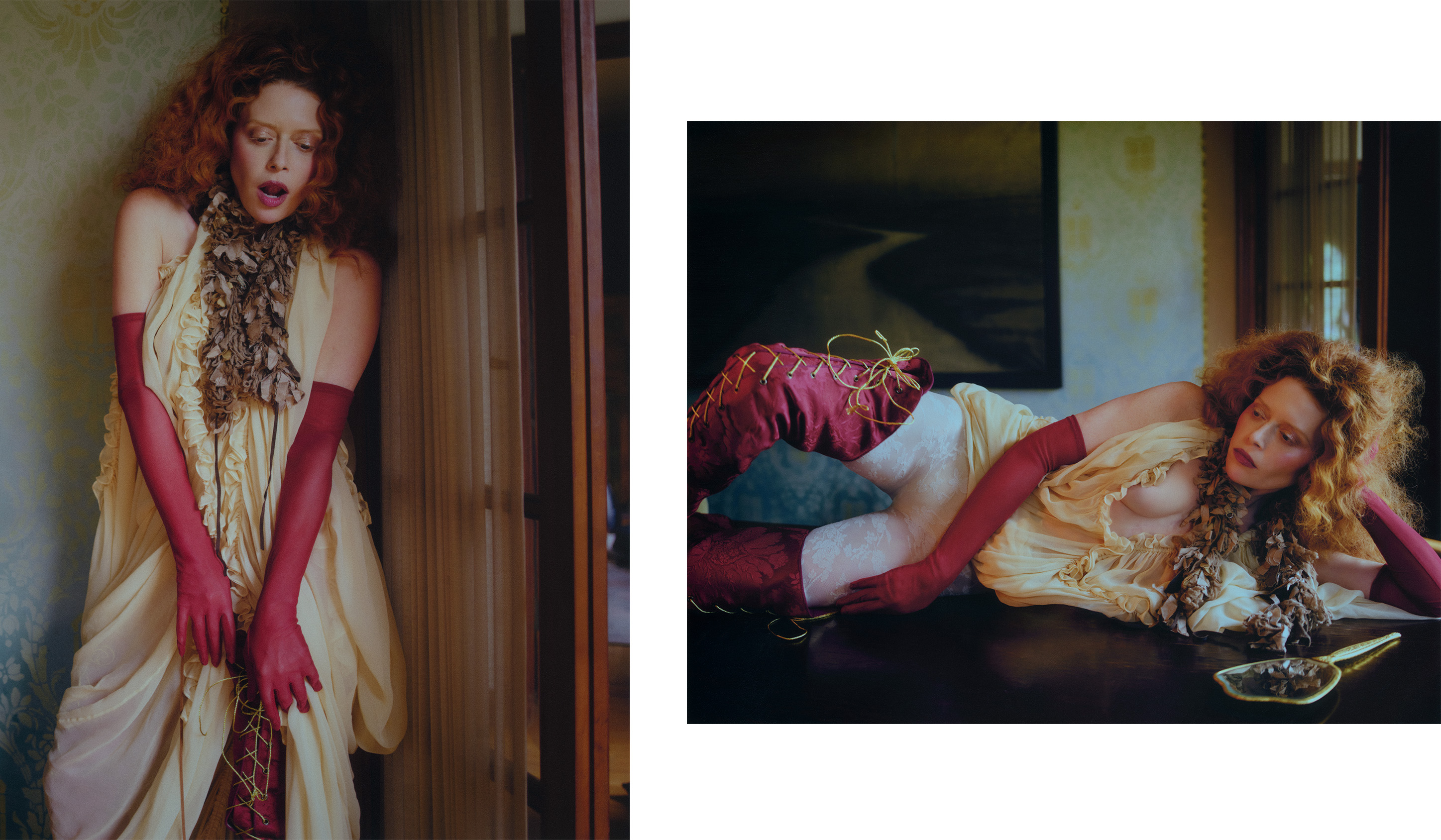
Zimmermann dress; Inferno Atelier boots; Stylist's own scarf and gloves
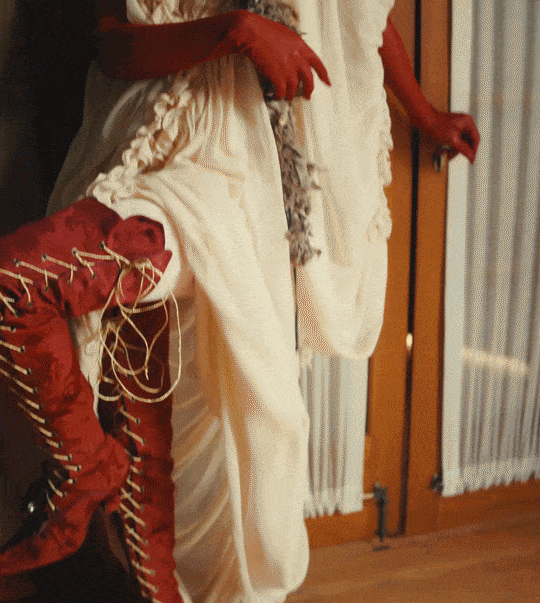
By this point, we’ve been at the studio for almost an hour. This was not exactly the plan. The plan was to meet here, then go to a diner. Lyonne even had a specific diner in mind: the Astro. But as her mind wanders toward her friend’s birthday gathering (which has already begun), she considers aloud, several times, whether we ought to skip the diner altogether. Must we bother with the diner?
“So you think I’m getting in a car for fifteen minutes to go to a diner,” she says to me, as if the whole thing were my idea—the whole thing being not just going to this diner but the concept of diners generally, and also riding in cars—and this agreed-upon next stop was something I’d just invented, with the sole intention of making her miss the first hour of Alia Shawkat’s birthday party.
As Lyonne sinks deeper into the office couch, I realize something Hollywood learned about her a long time ago: She’ll do things the way she wants to do them, and the rest of us are just along for the ride.
Lyonne was born in New York and raised, for a while, on Long Island, in a dilapidated mansion her parents swore had once belonged to Herman Melville, a tall tale Lyonne believed until three years ago, when The New Yorker’s fact-checking department debunked the story. At the time of Lyonne’s birth, her parents were in a rough financial spot. They wasted no time putting their wide-eyed, charismatic daughter to work auditioning for film and TV. As a six-year-old, Lyonne appeared in the Mike Nichols’ adaptation of Nora Ephron’s divorce roman à clef, Heartburn, and as a hippie kid named Opal on Pee-wee’s Playhouse; on the train from Long Island to the city, she’d read daily stock prices out of the Wall Street Journal to entertain adults “like a vaudevillian auctioneer,” she says. “People love that kind of thing from a child. They think it’s witty.” Her droll review of her early work: “I really peaked with that.”
Both of her parents drank and used drugs; they separated when Lyonne was 10 years old, and her mother brought her back to New York from Israel, where the family had moved a few years earlier for, as Lyonne said in an interview, “tax evasion reasons, not religious ones.” (Lyonne’s mother died in 2013; her father in 2014.) Back in New York, Lyonne returned to the hustle, auditioning so much that she has said she considered herself a “jaded professional” when she was still a child. At 15, she landed a part in Woody Allen’s Everyone Says I Love You; by 20, she’d found fame with her performances in cult favorite Slums of Beverly Hills, queer-camp classic But I’m a Cheerleader, and two of the American Pie movies.
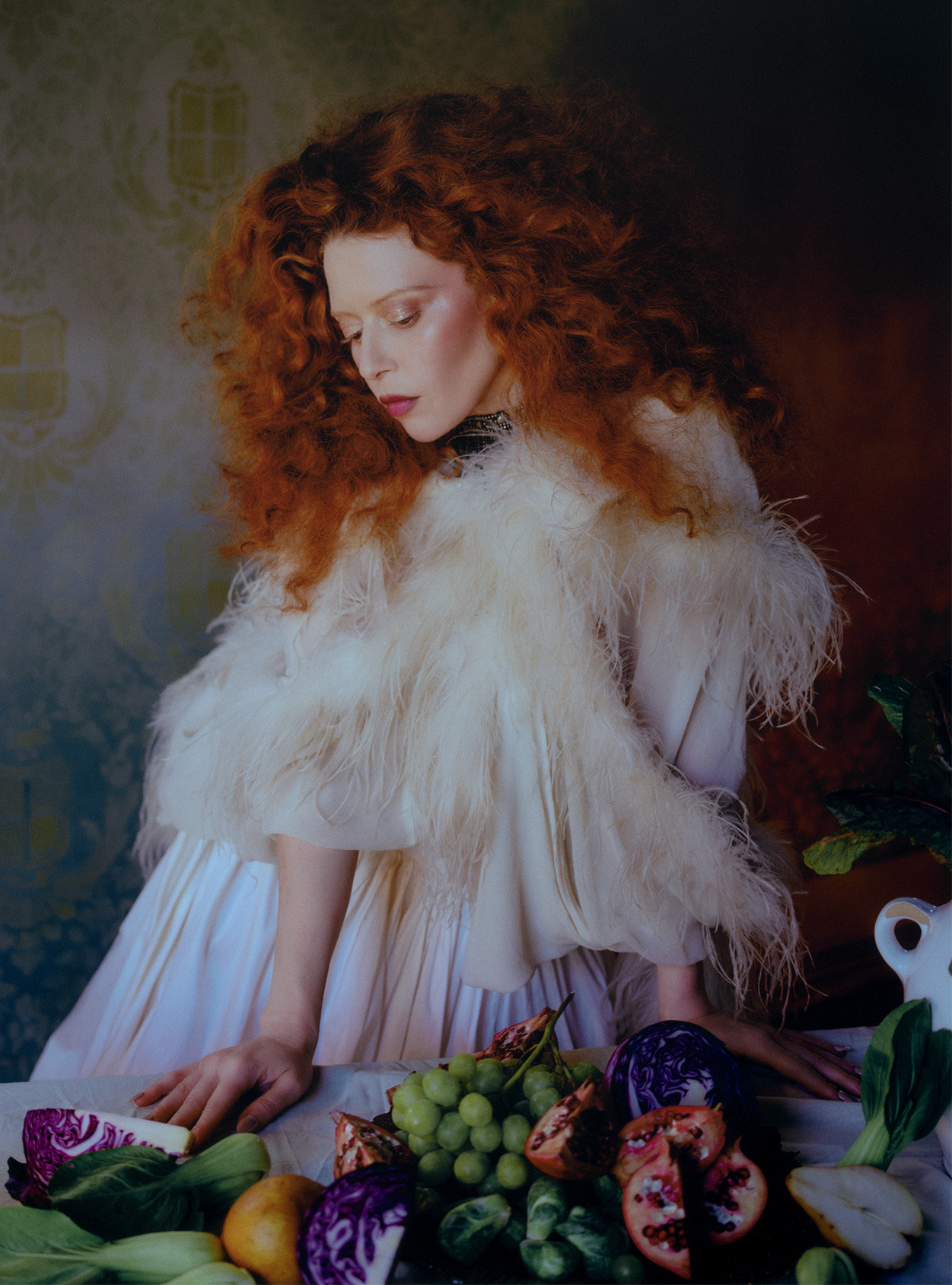
Miss Claire Sullivan cape, skirt
Given that she spent all her formative years performing for others’ approval, it’s not a huge surprise that—in the Uber Mooser summoned, over Lyonne’s objections, to take us to the Astro—she gets self-conscious when, for a few minutes, our conversation lapses into silence. “I feel like I should be entertaining you,” she says, glancing up from her phone.
Lyonne picked the Astro because she likes the atmosphere: unpretentious, ‘70s-coded, cash-only. Very Poker Face. We arrive in time for the early bird special but agree that, at a diner, the move is breakfast, pie, or both. She orders a mushroom omelet, a slice of pumpkin pie, and a decaf coffee.
From the clavicle down, she is dressed like an undergrad cramming for finals: black Ugg boots, stretchy patterned pants, undershirt-style tank top. In an insouciant-celebrity touch, she is wearing $10,000 dollars worth of vintage jewels around her neck, procured by a stylist, Leith Clark. (It’s a loaner, she tells me: The price tag is too steep for her to buy it for keeps.) Her Miss Frizzle head of orange curls is bright under the diner lights, framing the same face she had when she was a kid on Pee-wee’s Playhouse.
I ask Lyonne if it’s been hard to hold the line and leave the dance with the same face she came in with, but then I correct myself—maybe she has gotten work done, but it’s just the really good, subtle kind of work that looks like no work at all. “Listen, I don't think you're going to find any woman in this town who hasn't had a dermatologist put a laser on their face,” she says. “But I've never had anything that made me not be able to go to dinner right after.”
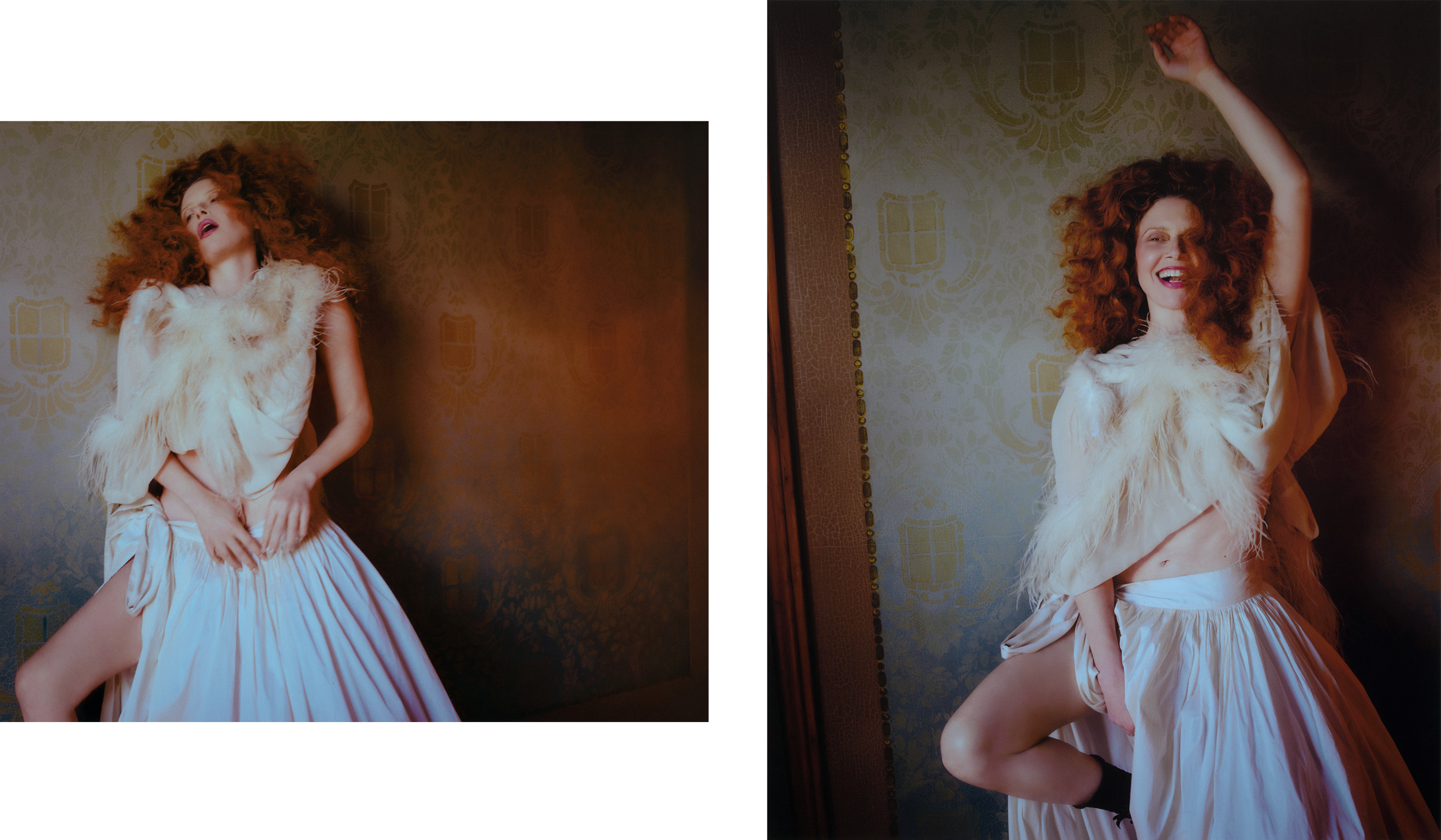
“If I could,” she teases, “I would get one of those really poufy upper lips. That’s why I’m always overdrawing my upper lip line.” Her (uninflated) mouth makes a mischievous grin. “I’d probably also get really big boobs and a really big BBL.” So what’s stopping her? “I'm a character actor who is sometimes famous and sometimes not, so, you can't really do that much,” she says, shaking some ketchup and hot sauce onto her plate. “You're limited by that, unfortunately, because you've got to have your face move and stuff. Funny people, you can't be fully frozen.”
Away from the distractions of her office, Lyonne zeroes in on what we really came here to discuss. She kicks her feet up on the vinyl seat and starts talking about Poker Face. But there’s no discussing Poker Face without digging into her last major TV project, Russian Doll, as Lyonne sees the former as a spiritual continuation of the latter. On that surreal Netflix series, which Lyonne co-created and executive produced, Lyonne played Nadia, a woman who dies on her birthday, gets stuck in a time loop, and in her attempts to get unstuck, keeps dying again and again in increasingly gruesome ways.
Lyonne describes Nadia as “sort of a detective on her own case. She’s moving from this self-destructive nihilist who's investigating her own death to somebody who forms a connection and is able to get a new lease on life. Poker Face’s Charlie “is this almost extension, in a way, of a character who's now lost interest in themselves and gained interest in their fellows…She's really on the case of other people's injuries and damage…and can't help but tell the truth when she sees it.”
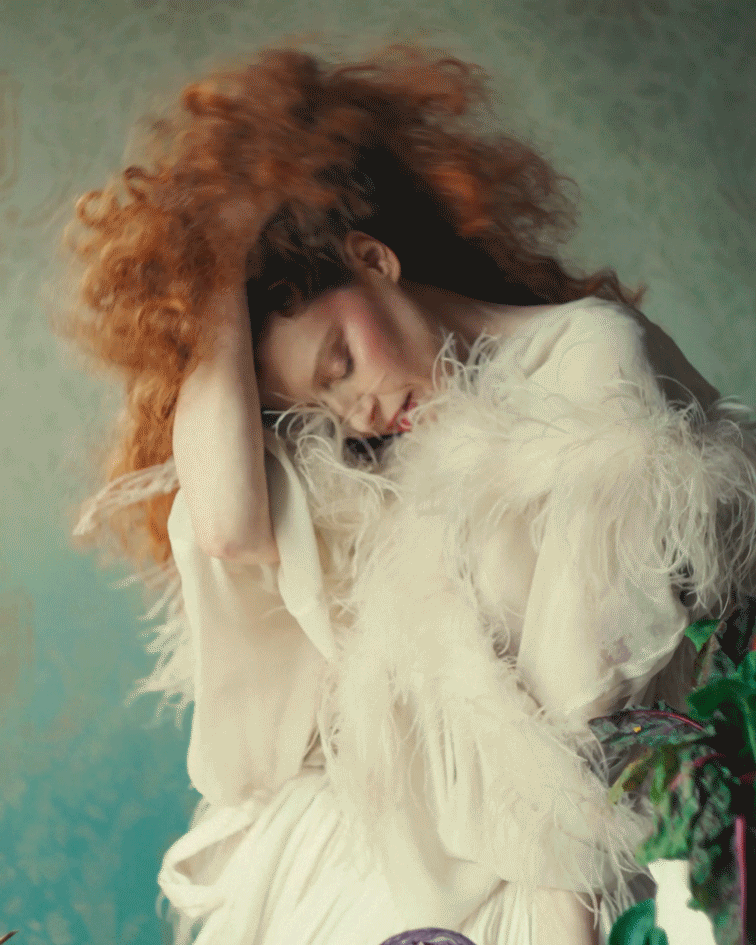
In addition to being a human lie detector, Charlie Cale is almost comically unkillable. Her ability to survive is even more impressive than her bullshit-spotting powers. Bullets aimed her way never fell their target. In season one, Charlie is hit by a speeding Lamborghini, buried alive in a rich killer’s secret hidey-hole, then crawls out of said hidey-hole, only to be brutally stabbed and shoved back into the hidey-hole, from which she manages to escape yet again. No matter what happens she springs back to action, bouncing up from every near-death knock-down like a Pop-Tart from the toaster.
I suggest that Charlie is like a Looney Tune. Lyonne nods appreciatively. “She is a Looney Tune.” Nadia was, too. Lyonne says that back in the Russian Doll writers’ room, she “had written a bunch of actual anvil bits”—a sort of “refresher” on all the season one deaths, rendered in the cartoon style: a falling piano, a stick of exploding TNT—for Nadia to sidestep.
Lyonne, too, is something of a resurrection artist. Her chaotic childhood bloomed into a tumultuous adolescence. She was expelled from high school after getting cast in Everyone Says I Love You—she would've had to miss six months of class for shooting, plus she was already "the weed dealer" at school, and on scholarship; it was, she recalled, "one thing too many"—and enrolled at NYU a few times, for a few days at a time, only to "drop back out every time they asked for tuition and wouldn't agree to a scholarship." As her career escalated, so did her drug use. In 2006, after a battery of difficult incidents—a DUI charge, a night in jail, an eviction, all of which were documented eagerly by tabloids—Lyonne went to rehab. She got clean and, in 2009, did an off-Broadway play with Nora and Delia Ephron. It was a full-circle situation for Lyonne, who’d made her film debut as a child in the Nora-penned Heartburn. Coverage of Lyonne’s return to work marveled at the fact that she was around to work at all. (A representative headline from this period: “Hey! Natasha Lyonne Is Still Alive!”)
With Orange Is the New Black, which premiered in 2013, Lyonne was fully relaunched into the public consciousness, playing a wisecracking inmate who’d grappled with drug addiction and whose issues provided a meta-commentary on Lyonne’s own struggles. Five years later, she co-founded the production company Animal Pictures with longtime friend Maya Rudolph (Rudolph has since left), which counts Russian Doll, Poker Face, and the Rudolph-starring Apple TV+ Loot among its biggest projects.
“I think when we talk about a woman stepping into her power, it does look something like this,” Lyonne says. “You’ve got to get on the front lines.”
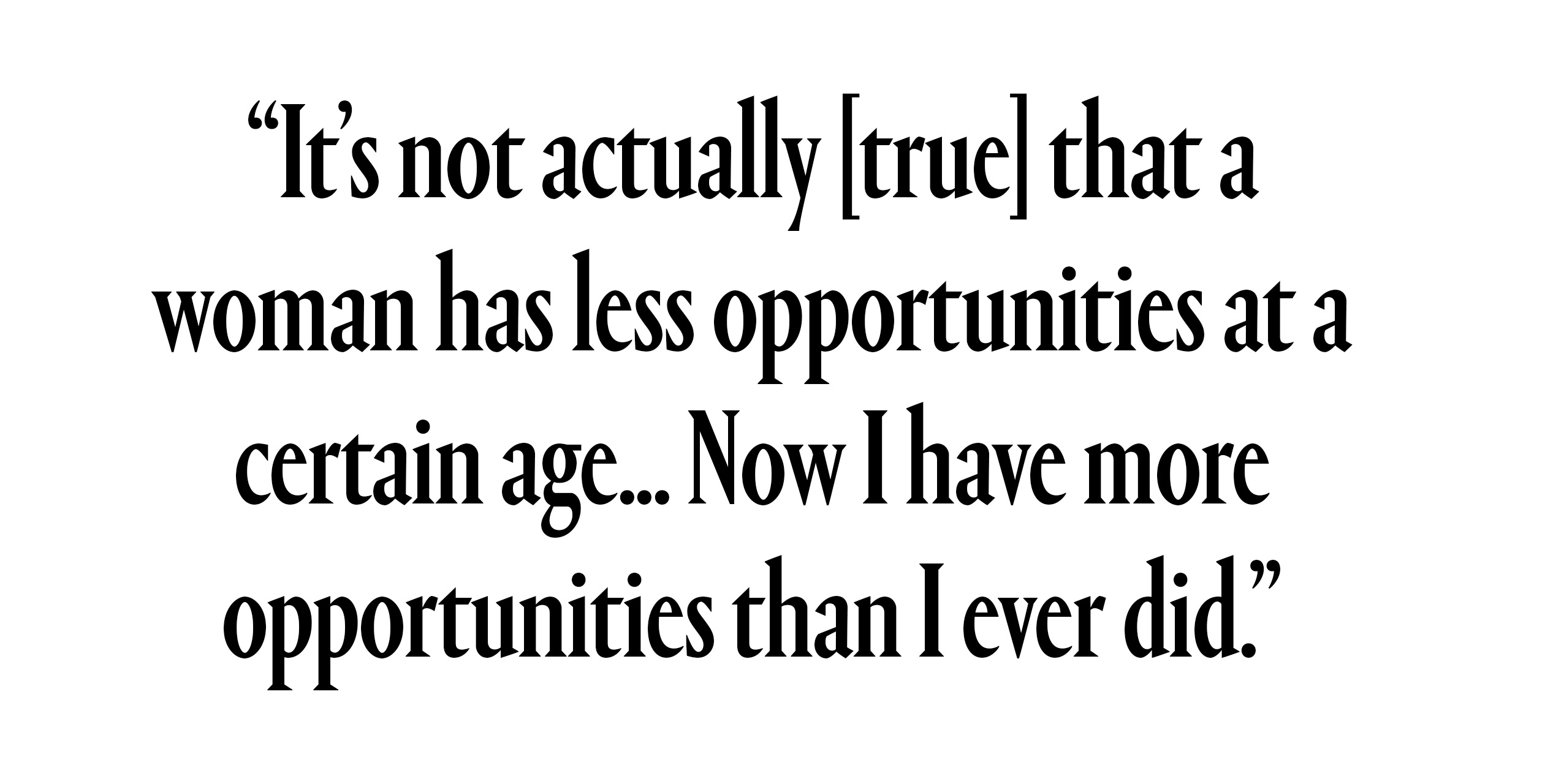
The first time Lyonne and Russian Doll co-creator Amy Poehler tried to get their series made, they were rejected. NBC wasn’t interested in what was then called Old Soul. Lyonne was crushed. “It was very confusing for us,” she says. “And I remember [Poehler] sat me in a car and I was chain-smoking and the windows were rolled up, and she said, ‘I know it sucks about NBC.’” But Poehler encouraged her to see the freedom in that no: What would she make if she could make anything?
“With Natasha, you get to swim in the conversational deep end, and that is where great ideas are found,” Poehler writes to me in an email. The resulting series, which aired from 2019 to 2022, was far stranger and richer than the comedy they’d originally pitched. Russian Doll was an award-winning critical smash. It did not, however, catapult Lyonne from the industry’s punkier edges to its mainstream inner circle.
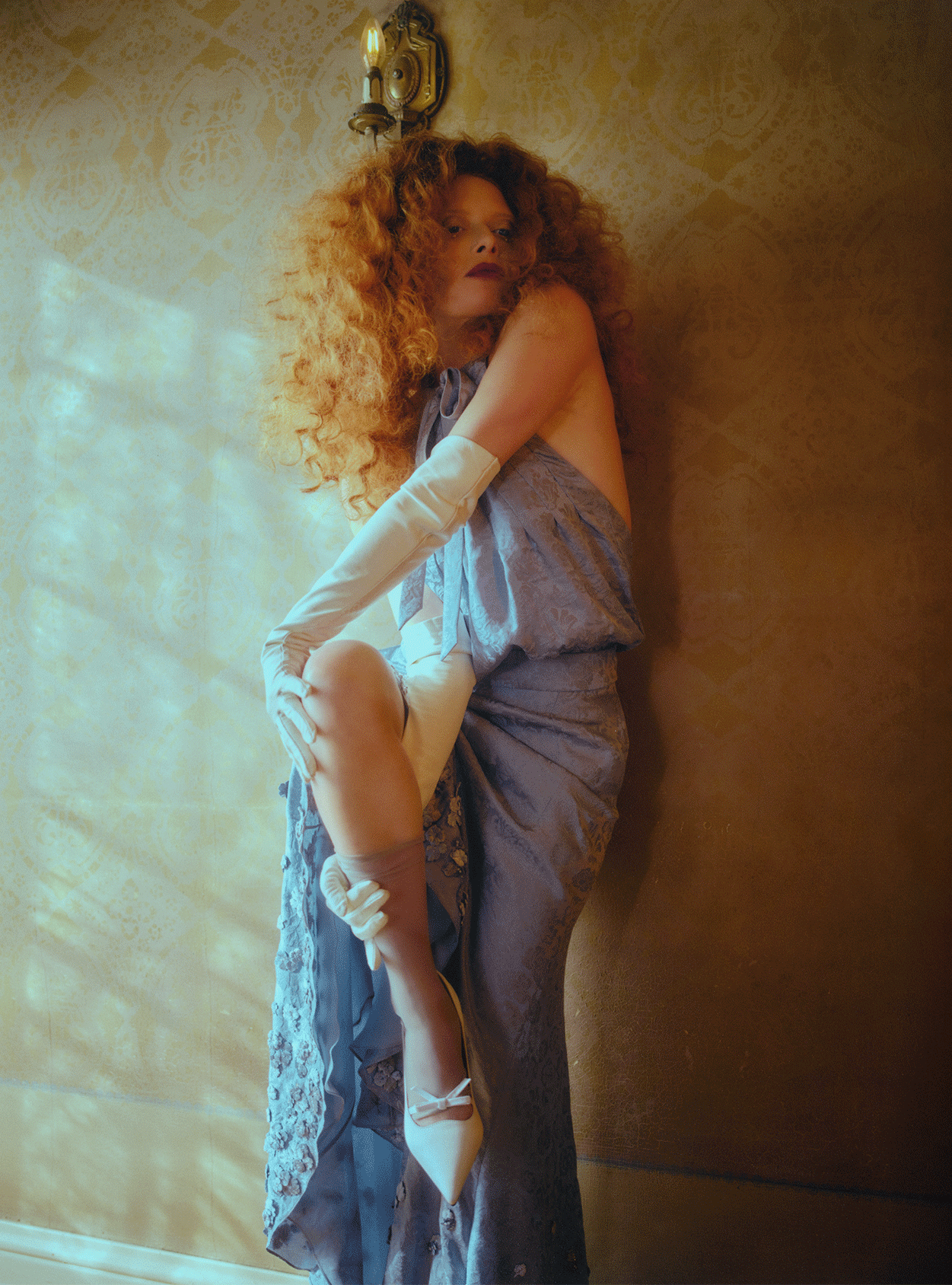
Chanel jacket, dress; Wolford tights, socks, briefs; Paula Rowan gloves; Jimmy Choo shoes
Though Lyonne’s affect is that of the slacker cracking jokes from the back of the class, beneath the blithe exterior, she is a gunner with lofty ambitions. With Animal Pictures—so named because, as Rudolph has said, Lyonne is “an animal”—Lyonne is able to use her clout to get things made. But she says she is still the one making things happen, less often the one who things happen to. “I don’t get a lot of jobs, really. But I send a lot of text messages. Like Taika’s movie [the New Zealand filmmaker of Thor and Jojo Rabbit fame, is director of the upcoming adaptation of Kazuo Ishiguro’s novel Klara and the Sun], I’m only in it because I sent him a text message saying, ‘Why are you making an Ishiguro movie without me? Can I come be in it?’”
Poker Face, she says, came about because she got to know Johnson through a mutual friend, film critic and podcaster Karina Longworth. “So we ended up spending time together, but there’s not a ton [of] incoming calls, even now.” She’s asked, sometimes, to adapt projects. But “a nice hunky job…for a nice hunk like you? They don’t say that often. It’s a different business or something.”
This is not a new dilemma for Lyonne. “I had the same problem back before I was able to activate my own projects…I would just find myself on the phone with an agent being like, ‘So they're just not making any jobs? Because I've seen a bunch of billboards around town. So I'm pretty sure they're still making movies.’”
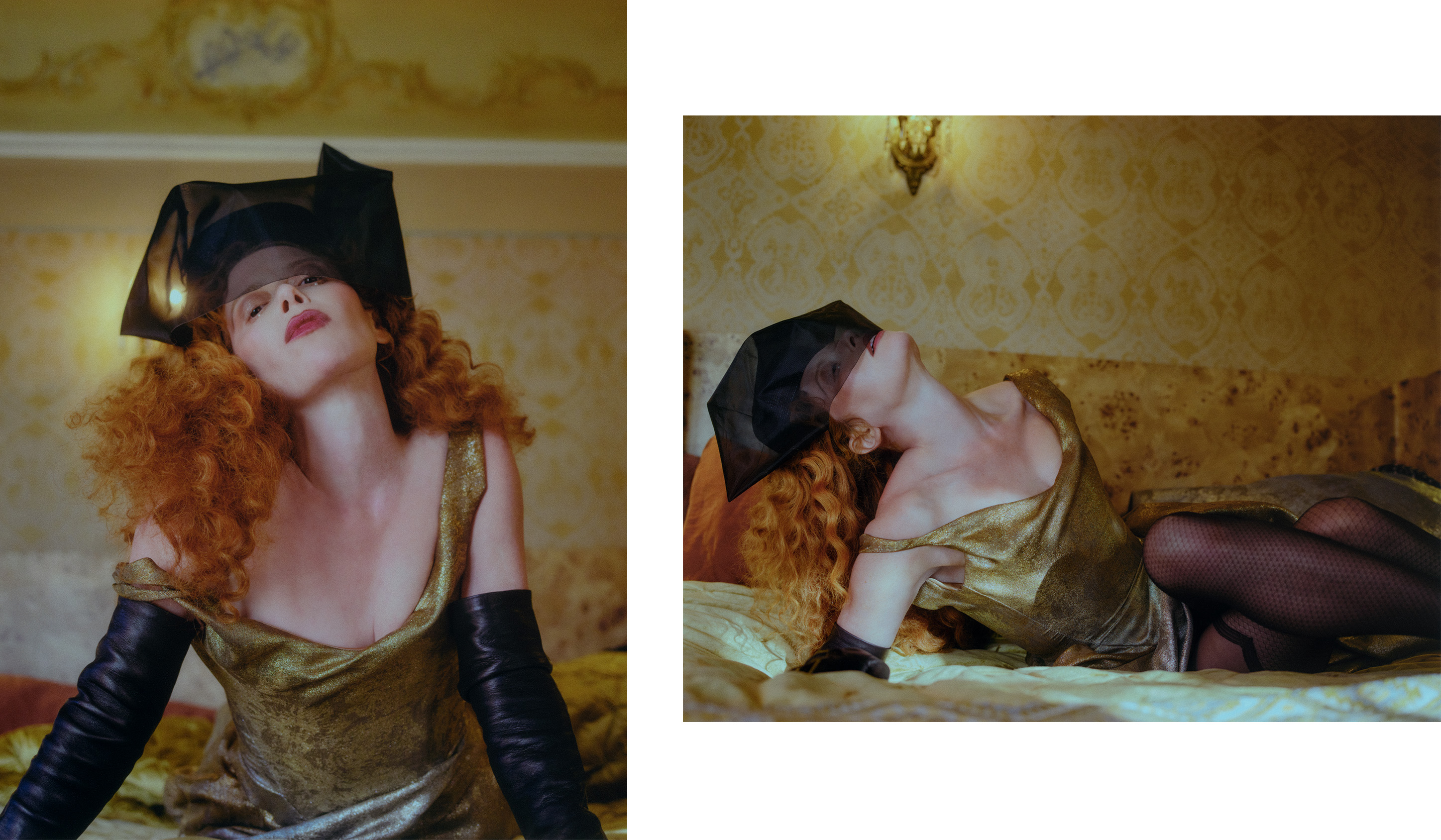
Vivienne Westwood dress; Noel Stewart headpiece; Paula Rowan gloves
Still, it’s not in Lyonne’s nature to sit around waiting for a call. Clea DuVall, who has been friends with Lyonne since meeting her back in 1998, tells me by phone the week after Lyonne and I spoke, “I think Natasha is never afraid of doing the work. And she understands that to succeed in this business, you do have to do the work. It does come down to that, and she really did that. There was no sense of entitlement. There’s no resentment over having to start small and sort of recalibrate.”
If anything, what Lyonne warmly calls her “love of the game” is stronger than ever. She feels like she’s in a great spot, despite what popular misconceptions about women, aging, and showbiz would have one believe. “It’s not actually [true] that a woman has less opportunities at a certain age,” she’d told me back at the studio. “As someone fully entrenched on that other side of that Maxim magazine I never did, now I have more opportunities than I ever did.”
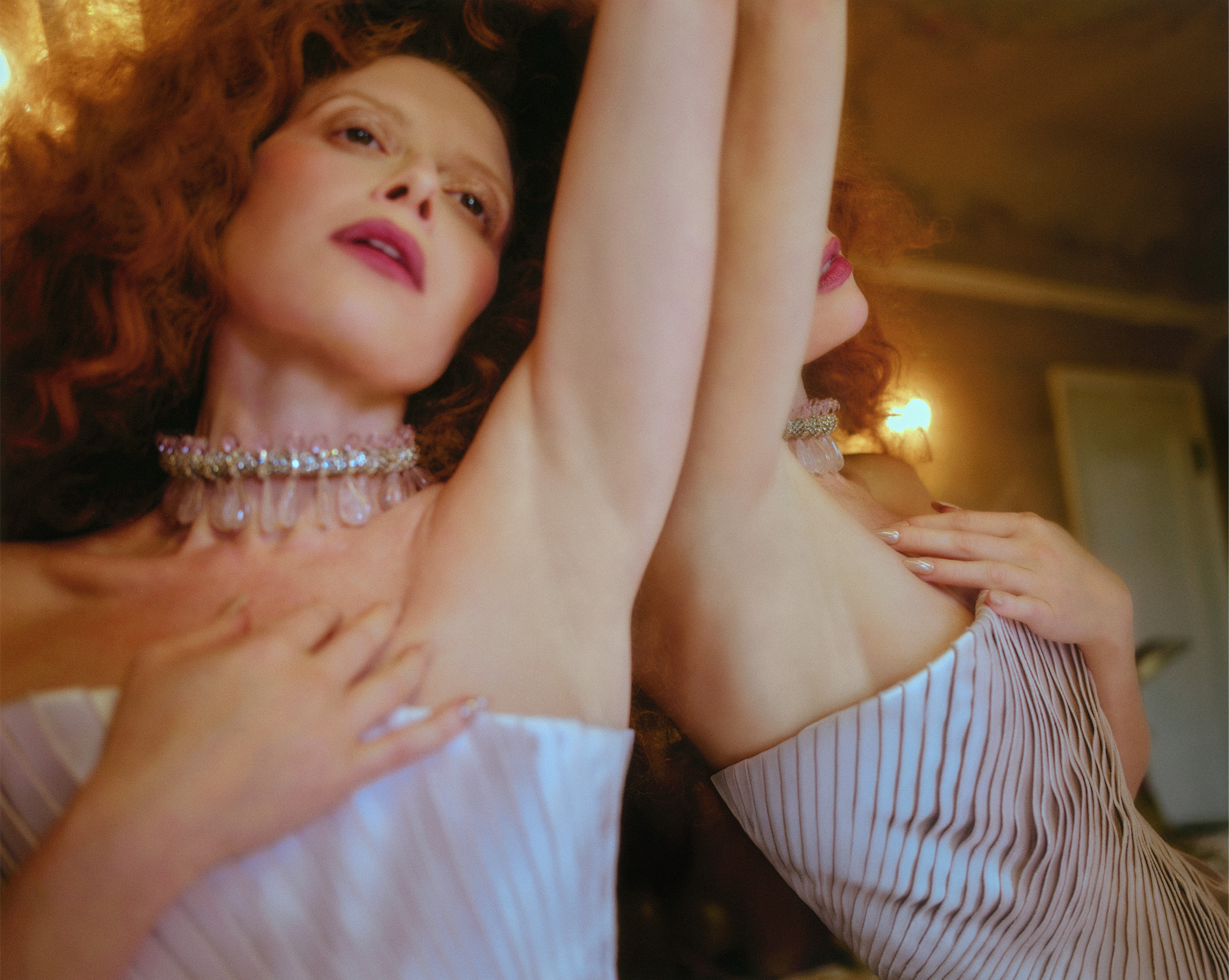
For Lyonne, this is what opportunity looks like: rolling your sleeves up to your elbows, sweat dripping onto the desk, and willing your art into existence. The “hunky jobs” are nice. She wouldn’t turn one down. But what truly fuels Lyonne is enjoying the privilege of not compromising, of doing things her own way.
Is this how she imagined it would be, when she was a kid roaming Times Square back when Times Square was no place for a kid? Did the Wall Street Journal-reading vaudeville act have any idea she’d wind up here?
I’d ask her, but Lyonne is already on the move. At exactly six o’clock, she bounds up from the booth. “All right, we’ve done it,” she says, triumphant. “See you in pictures.”
Photographer: Emman Montalvan | Stylist: Genesis Webb | Hair Stylist: Vernon François | Makeup Artist: Pati Dubroff | Manicurist: Vanessa Sanchez McCullough | DP: Sam Miron
Jessica M. Goldstein is a freelance writer covering all things culture. Her debut novel, RETRO, is coming out from Ballantine Books in 2026. You can read her in The New York Times, Vulture, McSweeney's Internet Tendency, and more.
